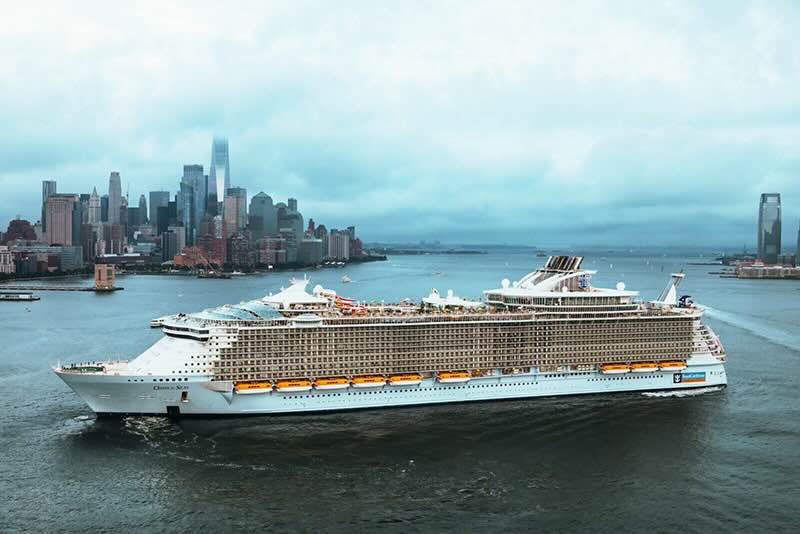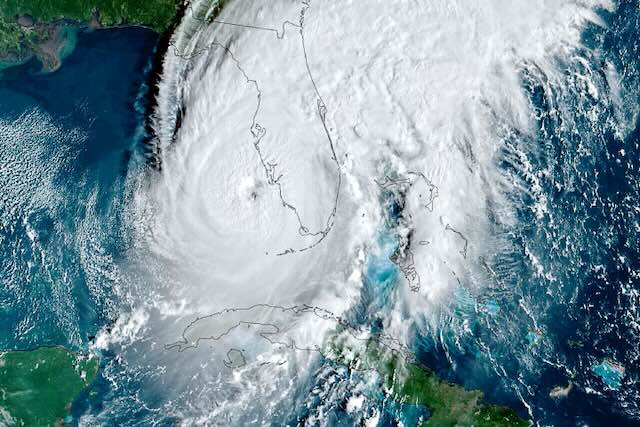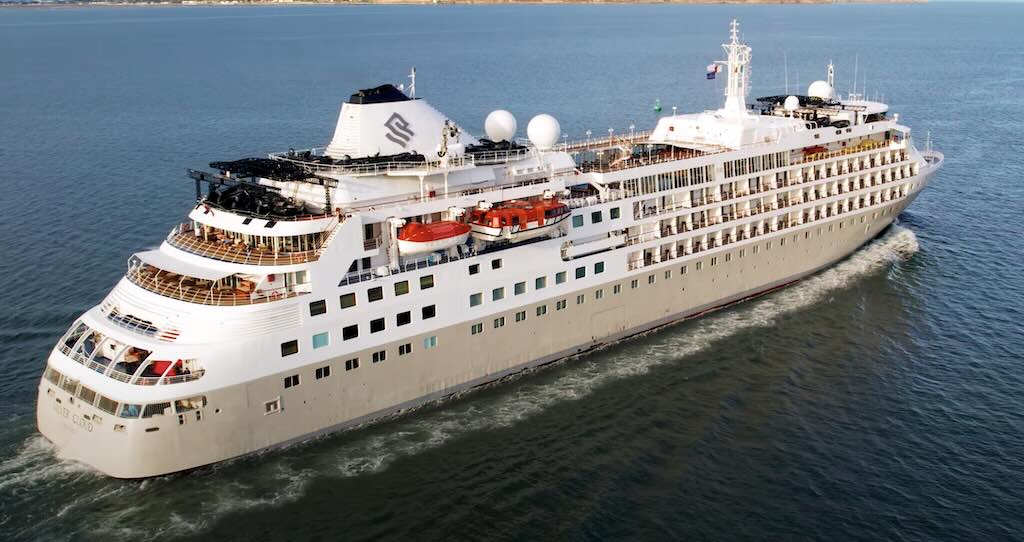Cruise insurance is the only thing standing between you and a $47,000 bill for catching the flu on vacation.

I wish that was an exaggeration, but one poor guy actually lived it. He won a free cruise to the Bahamas, got sick onboard, and came home to a medical bill larger than most people’s cars. That story alone should make you think twice before clicking “skip insurance” during checkout.
In this guide, I’ll break down:
- What cruise insurance really covers
- Where most travelers go wrong
- How to protect your trip without overpaying
Whether you’re sailing with Royal Caribbean, Carnival, or anyone else, cruise insurance could be the smartest money you spend on your entire vacation.
Why Cruise Insurance Matters
Most people think of cruise insurance as a “nice to have” until disaster strikes. Then it becomes a lifesaver.

One traveler from Minnesota learned that the hard way. He caught the flu on a cruise to the Bahamas and ended up needing emergency medical treatment onboard. When he got home, he was hit with a $47,000 bill. That’s not a typo — forty-seven thousand dollars for a virus you could catch in an airport terminal.
And it’s not just rare edge cases. Check out this real quote from a cruiser on Reddit:
“We used VisitorsCoverage… infection requiring 3 days of antibiotics… cost was $6,000. Insurance covered it all.”
Medical bills at sea aren’t like bills at home. Cruise ships operate under maritime law, and once you’re in international waters, you’re not covered by your regular U.S. health insurance. That makes travel insurance one of the most important things you pack, even more than sunscreen.
Horror Stories: Real Emergencies at Sea
Still on the fence about cruise insurance? These real-life cruise disasters might change your mind.

Here are just a few situations where travelers were rescued by their policy — or wished they had one:
- $47,000 flu treatment: A man from Minnesota won a free Bahamas cruise, caught the flu onboard, and came home to a crushing $47K medical bill for onboard care and medication.
- Pre-term labor evacuation: A pregnant passenger went into labor prematurely during a Caribbean sailing. She had to be airlifted off the ship, resulting in tens of thousands in medical and transportation fees — all covered by insurance.
- Stranded family in Texas: One family’s connecting flight was canceled due to weather. They missed their embarkation in Galveston, had to book last-minute hotels and flights, and ended up spending over $1,000. Their insurance? Covered it all.
- Injury on a snorkeling excursion: A traveler slipped on wet rocks in Cozumel, needed stitches and medication, and was reimbursed over $800 thanks to their coverage.
These aren’t rare exceptions. With thousands of passengers boarding cruise ships daily, things happen. And when they do, having insurance can mean the difference between a quick fix and financial catastrophe.
What Cruise Insurance Actually Covers
Cruise insurance isn’t just for trip cancellations. A solid policy can step in when everything else falls apart — from missed flights to broken bones.

Here’s a breakdown of what most cruise insurance plans cover:
| Coverage Type | What It Means |
|---|---|
| Trip Cancellation | Reimburses you if you cancel for a covered reason (illness, injury, etc.) |
| Trip Interruption | Kicks in if your trip gets cut short and you need to go home early |
| Medical Emergencies | Covers doctor visits, treatment, and prescriptions during your cruise |
| Emergency Medical Evacuation | Pays for an airlift or transport to a hospital (can cost $25,000+) |
| Lost or Stolen Baggage | Reimburses you for missing or stolen belongings |
| Travel Delay | Helps cover meals, hotels, and incidentals during delays |
| Missed Connection | If a delay causes you to miss the ship or a tour, this can cover rebooking costs |
| Accidental Death | Provides a lump sum in tragic situations |
Some policies also offer:
- 24/7 emergency assistance hotlines
- Rental car coverage
- Coverage for COVID-related cancellations
But keep in mind, not all policies are created equal. Some are generous, others are bare bones. That’s why comparing plans is crucial (more on that soon).
Gaps to Watch Out For in Cruise Insurance
Just because you have cruise insurance doesn’t mean you’re fully covered. Most plans come with exclusions buried in the fine print — and trust me, they matter.

Here are some common gaps to be aware of:
- Alcohol-related injuries If you fall off a barstool or get hurt after a few drinks, many insurers won’t pay.
- Extreme excursions Ziplining in Jamaica? Scuba diving in Cozumel? High-risk activities often require special add-ons.
- Pre-existing conditions If you’ve had recent medical treatments, you may need a waiver or it might not be covered at all.
- Pet emergencies at home Canceling your cruise because your dog needed emergency surgery? That’s not always covered.
- Dental treatment Chipped a tooth on lobster tail? Dental coverage is often limited or excluded.
- Riots, war, or civil unrest If your port is skipped due to political instability, many plans won’t reimburse you.
Want to double-check the exclusions? SEND THEM TO AFFILIATE LINK HERE
Tip: Look for policies that offer “cancel for any reason” (CFAR) coverage if you want the most flexibility. Just note, those policies usually cost more and have stricter timing rules.
Cruise Line vs Third-Party vs Credit Card Coverage
Not all cruise insurance is created equal. In fact, where you buy it from can make a huge difference in coverage, flexibility, and claims success.

Here’s how the three main options compare:
| Feature | Cruise Line Insurance | Third-Party Insurance | Credit Card Coverage |
|---|---|---|---|
| Medical Emergencies | Often limited ($10K–$25K) | More robust ($50K–$250K+) | Varies widely; some cards exclude cruises |
| Trip Cancellation | Cruise credit, not cash | Full cash refund options | Only if paid with the card |
| Cancel for Any Reason (CFAR) | Rare or unavailable | Available (extra cost) | Not offered |
| Baggage/Delay Coverage | Basic | Better protection | Often included |
| Pre-Existing Condition Waiver | Usually not offered | Often available | Rare |
| Cost | Typically bundled, $ | Varies ($50–$200) | Free (if eligible) |
Reddit consensus: “Don’t rely on cruise line insurance — it’s overpriced and underdelivers.”
Many seasoned cruisers swear by third-party providers like Allianz, AARDY, or Squaremouth. They often offer better protection, more flexibility, and a smoother claims process than what the cruise lines sell.
And while some premium credit cards (like Chase Sapphire Reserve or Amex Platinum) do include limited trip coverage, it’s rarely enough to replace a full policy. Use it as a backup, not your main plan.
Pro tip: Always read your card’s benefits guide or call the issuer to confirm what’s actually covered — and what’s not.
How Much Cruise Insurance Costs
Cruise insurance usually costs between 5% and 10% of your total trip price. So if you’re spending $2,000, expect to pay around $100 to $200 for a solid policy.

Of course, pricing depends on a few key factors:
- Your age
- Trip length
- Destination
- Coverage limits (especially medical)
- Whether you add CFAR (Cancel for Any Reason)
To give you a better idea, here’s a quick comparison:
| Traveler Type | Trip Cost | Insurance Type | Estimated Premium |
|---|---|---|---|
| Solo, Age 35 | $1,500 | Basic policy | $80 |
| Couple, Age 50 | $3,000 | Mid-tier w/ med evac | $180 |
| Family of 4 | $6,000 | Comprehensive w/ CFAR | $400+ |
| Senior, Age 70+ | $2,000 | High medical limit | $250 |
Note: Older travelers usually pay more, since risk is higher.
If you cruise more than once a year, you might want to look into annual travel insurance plans. They often save money over multiple trips and offer peace of mind all year.
Also worth mentioning — some credit cards require you to pay for the trip using that card to activate any coverage. So double-check before assuming you’re protected.
Best Policies & Where to Get Them
Not all travel insurance providers are created equal — especially when it comes to cruise coverage. Some bury exclusions in the fine print or make claims frustratingly slow. That’s why I personally recommend going with a provider that specializes in travel insurance and understands cruise-specific risks.
VisitorsCoverage (Recommended)
If you want reliable, customizable, and affordable cruise insurance, VisitorsCoverage is the way to go. Their online platform makes it super easy to compare top-rated policies for things like trip cancellation, medical emergencies, missed connections, and more. You can even sort plans by coverage level or filter for “Cancel For Any Reason” (CFAR) options.
It takes less than 30 seconds — and could save you thousands if something goes wrong.
Why I Like VisitorsCoverage:
- Cruise-specific plans with generous medical and evacuation coverage
- Transparent pricing with no sneaky exclusions
- Simple online claims guidance
- Highly rated by thousands of real travelers
If you’re booking a Royal Caribbean or Carnival cruise (or any other line), this is the one I trust most.
Full disclosure: I may earn a small commission if you book through my link, but I only recommend what I use myself or truly believe in. And this one’s a no-brainer.
How to Make a Claim
So something went wrong on your cruise. Maybe your flight got canceled, you had to see the ship doctor, or you missed a port due to weather. Now what?

Filing a cruise insurance claim can be painless — if you know what to do. Here’s a step-by-step breakdown to help you get paid fast.
Step-by-Step: Filing Your Cruise Insurance Claim
- Start the claim ASAP Most providers have a deadline. Don’t wait. File online as soon as you’re home — or even from the ship if you can.
- Gather your documentation This includes:
- Medical receipts and treatment reports
- Flight delay or cancellation notices
- Proof of lost or delayed baggage
- Cruise itinerary and booking confirmation
- Police reports if theft was involved
- Be honest and detailed Incomplete or vague forms are the #1 reason claims get delayed or denied. Spell it all out.
- Follow up If you don’t hear back within 10–14 business days, follow up. Some Reddit users shared horror stories of claims “getting lost” or delayed for weeks. Stay on it.
- Appeal if necessary Denied claim? You can (and should) appeal. Especially if you think the provider overlooked something.
Pro Tips from Frequent Cruisers
- Always save your cruise dailies, emails, and port cancellation notices
- Take photos of receipts, injuries, or damages
- Use a provider with a strong online support system like VisitorsCoverage, which helps guide you through claims with clear instructions and FAQs
“Allianz ignored our doctor’s note for 3 weeks. Had to re-upload it twice before they acknowledged it.” – Reddit
A little extra work up front can mean hundreds or even thousands back in your pocket later.
Want to Dive Deeper?
Cruise insurance isn’t one-size-fits-all. Maybe you’re wondering:
- Does insurance cover helicopter evacuations?
- What about canceling because your dog got sick?
- When is Cancel for Any Reason (CFAR) actually worth it?
We’ve got posts covering all of that — and more.
👉 Browse all our cruise insurance posts here for deeper dives into real-world scenarios, policy add-ons, and advanced planning tips.
Whether you’re sailing with Royal Caribbean, Carnival, or Princess, these articles help you fine-tune your coverage without second-guessing every checkbox.
Jim’s Take: Why I Never Skip Cruise Insurance
I’ve cruised since I was 10 years old, and I still buy cruise insurance every single time. Not because I’m paranoid, but because I’ve seen too many things go sideways at sea — from medical emergencies to surprise cancellations and flight delays.
To me, it’s like buying peace of mind. For 5–10% of the trip cost, you’re protecting yourself from tens of thousands of dollars in potential headaches. I’d rather spend $150 up front than owe $47,000 later just for getting sick mid-cruise.
When might I skip it?
If I’ve booked something super last-minute, already have annual travel insurance, or I know my credit card covers the essentials, I might take the risk. But even then, I double-check that I’m not exposing myself to any major gaps.
Bottom line: cruise insurance isn’t flashy, but it’s one of the smartest travel purchases you can make.
Final Thoughts on Cruise Insurance
Cruise insurance might not be the most exciting part of planning your vacation, but it’s absolutely one of the most important.
A solid policy can cover trip cancellations, medical emergencies, lost baggage, missed connections, and more. It protects your wallet when things go wrong — and they do sometimes go wrong.
My advice?
Get coverage early. Read the fine print. And don’t just rely on cruise line insurance unless you know exactly what’s included.
If you want a great place to start, check out our recommended provider VisitorsCoverage — we use them ourselves.
What About You?
Ever been saved by cruise insurance — or gotten stuck without it?
Drop your story in the comments. You might help someone else avoid a big mistake.






